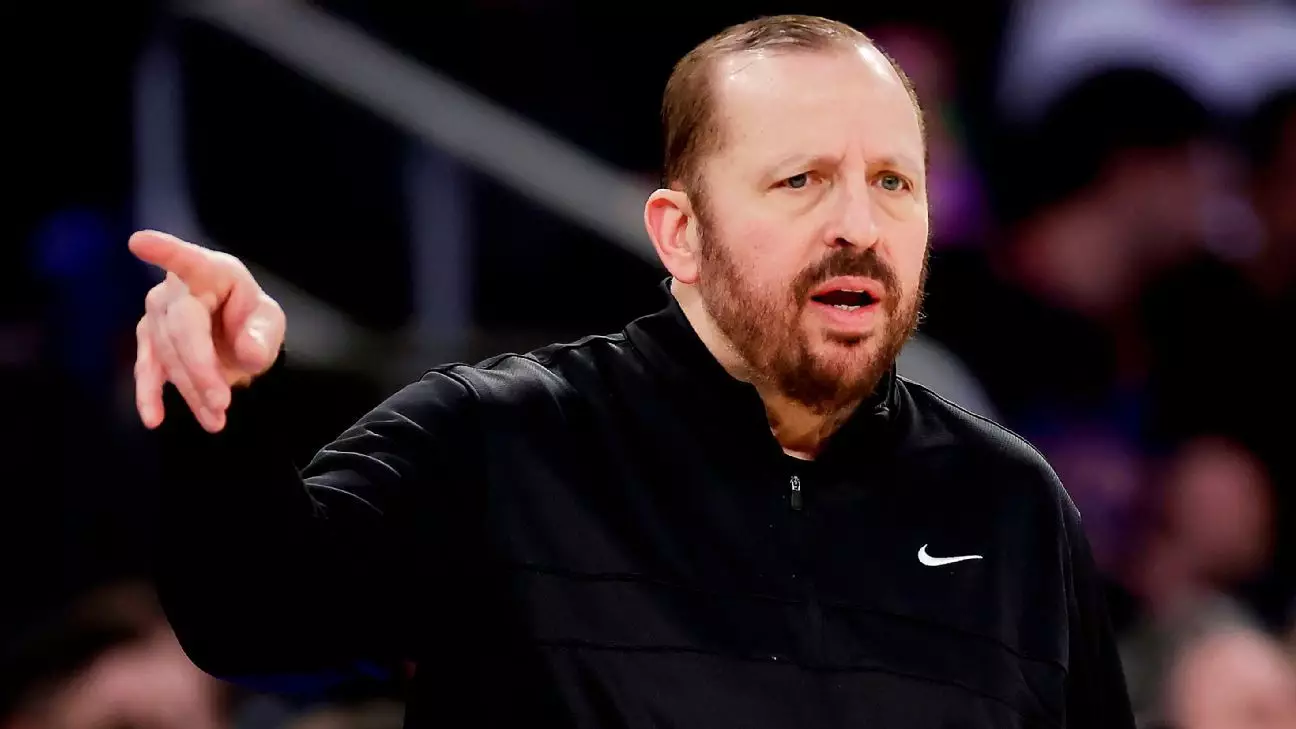The New York Knicks have sent shockwaves through the basketball world with their recent decision to part ways with head coach Tom Thibodeau, just days after finishing an impressive playoff run that saw the franchise reach the Eastern Conference finals for the first time in 25 years. While this move may come as a surprise to many fans and analysts alike, it speaks volumes about the ambitious direction the Knicks intend to take in their quest for an elusive championship. Thibodeau’s contract extension just a year ago had many believing that stability and continuity were the priorities, especially considering how well the team performed throughout the season, including a stunning upset over the reigning champion Boston Celtics. However, the franchise appears to be prioritizing not only winning but a paradigm shift that might redefine their legacy.
The Thibodeau Era: Triumphs and Tribulations
Thibodeau’s tenure with the Knicks was undeniably transformative. He not only eclipsed legendary coach Pat Riley to become the fourth-winningest coach in Knicks history, but under his leadership, the team amassed back-to-back 50-win seasons for the first time since the mid-90s. These achievements, however, were coupled with the perception of stagnation in the playoffs. Despite his ability to energize the team and foster a winning culture, the early exits from the playoffs raised concerns about strategic flexibility and player development. His insistence on heavy minutes for starters, even as the league trend shifted towards load management, may have ultimately influenced the front office’s decision to move in a different direction.
Shuffling the Deck: Roster Overhaul and Future Aspirations
In a bid for a more competitive roster in the current NBA climate, the Knicks executed significant trades before the season. The acquisition of All-NBA center Karl-Anthony Towns and the pivotal move for Brooklyn’s Mikal Bridges made it clear that the organization aimed to build a team capable of not just reaching the playoffs, but advancing far into them. This bold approach, however, was not fully realized under Thibodeau’s coaching style, which often favored experienced players over emerging talent. The Knicks have evidently recognized the need for a coach who can nurture their evolving roster and maximize its potential.
The young talent led by Jalen Brunson has shown shooting prowess that could redefine the team’s offensive strategy. Brunson’s passionate defense of Thibodeau during a recent press conference reflected the respect he commanded in the locker room, yet even he seemed to understand the necessity of aligning the coaching philosophy with the dynamic capabilities of the roster.
More Than Just a Coaching Change
The Knicks’ decision to let go of Thibodeau can be seen as more than just a reactionary measure following a playoff exit; it signals a renewed commitment to adaptability and innovation in coaching. In a league where the strategic landscape is shifting dramatically, having a coach whose approach is in sync with current trends is critical. The expectation now lies with the front office to identify a leader who not only understands the technical aspects of the game but is also capable of nurturing young talent while creating an atmosphere of resilience and versatility.
While Thibodeau’s storied history with the team—including his deep connections dating back to when he was an assistant in the 90s—will always be a part of the Knicks’ saga, this pivotal moment clearly prioritizes future success. The organization must now find a coach who resonates with the franchise’s long-suffering fanbase and aligns with new generational players like Brunson, who merit an environment that fosters their growth. The Knicks are at a crossroads, projecting themselves not just as competitors but as legitimate threats to a championship banner.
As the city buzzes with speculation about potential coaching candidates, one thing is evident: the Knicks are taking charge of their destiny. The future promises to be invigorating, but it will require a tactical shift that embraces both the organization’s rich history and the evolving dynamics of modern basketball.


Leave a Reply